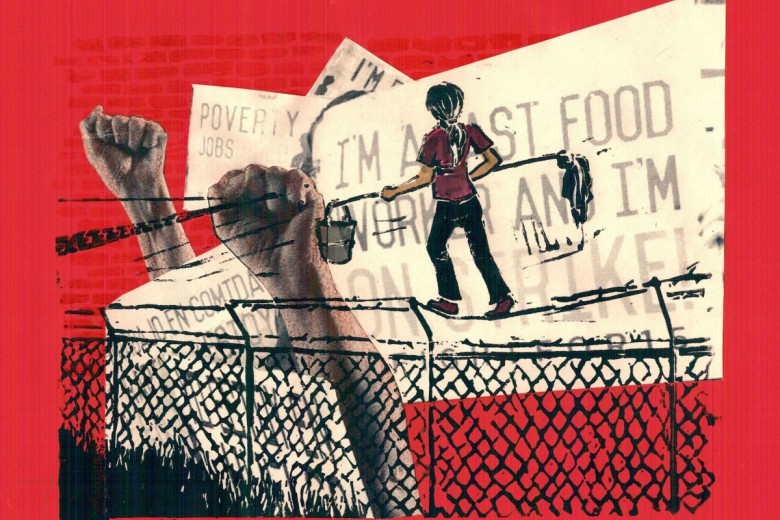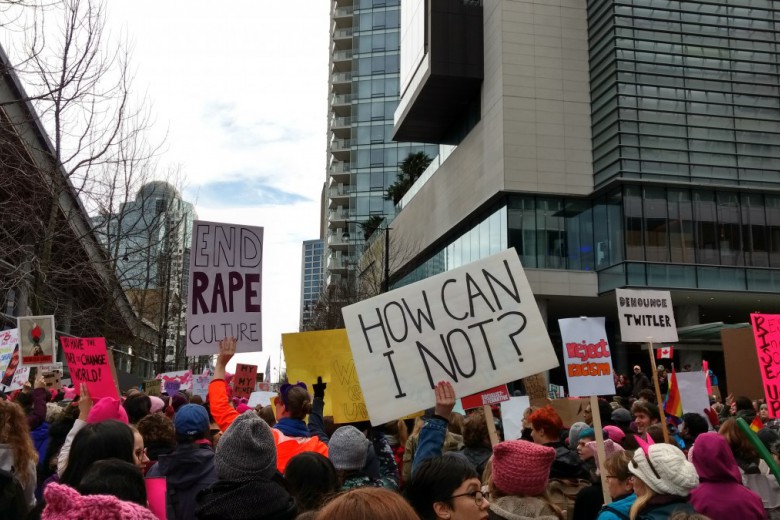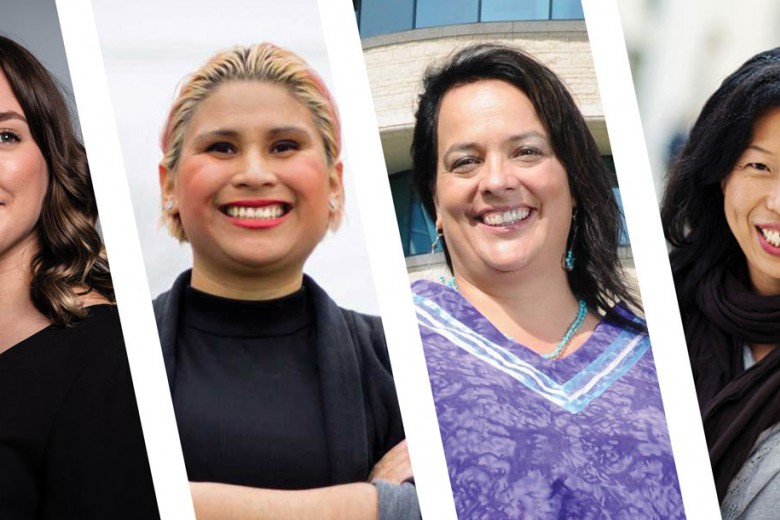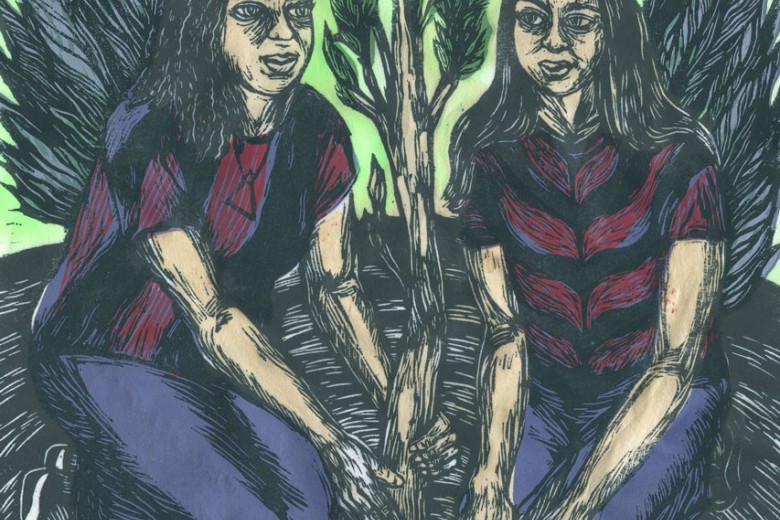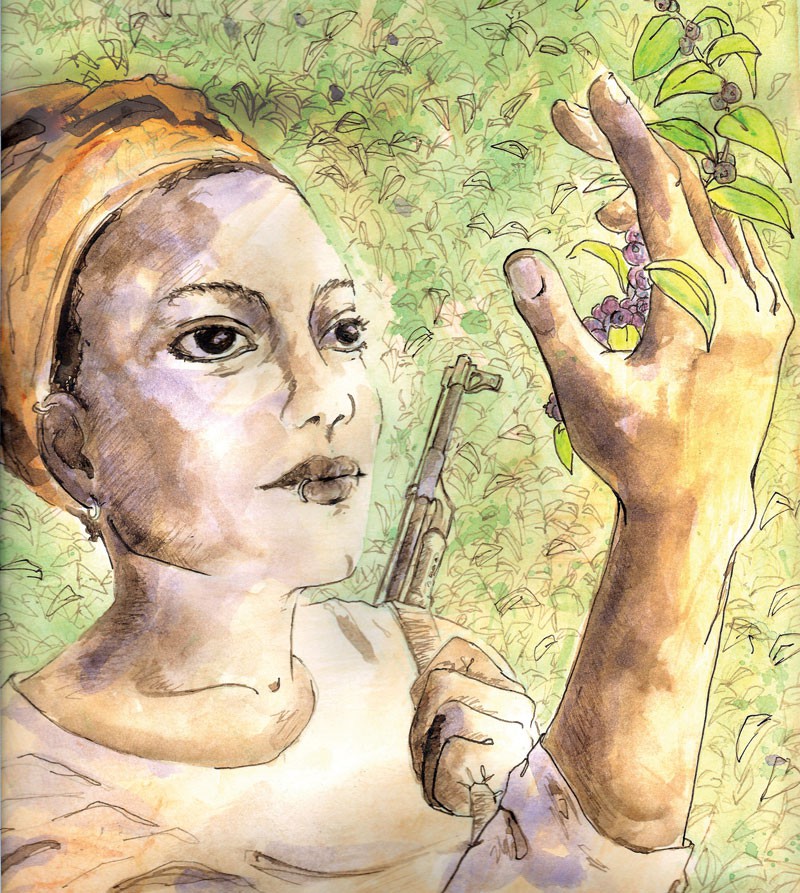
“Women should avoid dressing like sluts in order not to be victimized.”
—Toronto Police Constable Michael Sanguinetti
The above statement, uttered at an information session on campus safety at York University on January 24 this year, is but one expression of the systemic gender oppression that plagues our institutions and relationships. The ethic that informed Sanguinetti’s statement is so deeply embedded in the structure of our society that it is often rendered invisible.
Time and again, when incidents like this bring institutionalized violence into sharp, if fleeting, public focus, we treat them as reprehensible but anomalous slip-ups, vilifying the individual rather than holding responsible the systems of oppression from which his words or actions emerge. In a sense, we shoot the messenger.
Sanguinetti must be held accountable. But investing all of our rage and blame in a single representative of society’s ills is dangerous. As Yasmin Jiwani points out in “Hierarchies of worthiness” in this issue, the mainstream media’s singular focus on a mad serial killer or lone soldier who misuses his power is only a distraction: the real problem is the underlying systems of violence that give birth to his actions and determine who his victims are.
Rather than shoot the messenger, let’s gratefully accept the constable’s statement as an invitation to trace his message back to its roots and untangle the mess of systemic oppression from which it sprung.
As Judith Butler articulates in “Lives less livable” on page 4, at the root of all oppression and violence is the question: whose lives are valuable? From the hundreds of women who die at the hands of their intimate partners every year in Canada, to the thousands of gay men who lost their lives to AIDS in the 1980s before the medical system decided to pay attention, or the genocide of Indigenous peoples in North America, there is an undeniable pattern in whose lives are considered valuable, livable and ultimately grievable.
Statistics of violence based on gender or sexual orientation bring stark clarity to this pattern. Between 1997 and 2002, spousal violence made up the single largest category of convictions involving violent offences in Canada. Over 90 per cent of offenders were male. Although no national record of exact numbers exists, Indigenous activists estimate that 60 per cent of the 3,000 or more women who have gone missing or been murdered in Canada since 1980 were Native. Indigenous women between the ages of 25 and 44 are five times more likely than all other Canadian women in the same age group to die as a result of violence. And gay and lesbian individuals are 2.5 times more likely to be victims of violence than heterosexual individuals.
The first step toward emancipation must be recognition of the shared struggle between all those considered less valuable by our state and social structures. Liberation can only happen collectively and across all communities simultaneously. Freedom at the expense of others’ freedom is not freedom at all, but a different and twisted kind of enslavement.
Nearly a month after Sanguinetti’s talk, and in response to public outrage by York University students and staff, the constable apologized and retracted the statement.
In the six weeks following his statement, a grassroots group of impassioned organizers launched SlutWalk, a march from Queen’s Park to the Toronto Police Headquarters that saw thousands of self-proclaimed sluts take to the streets on April 3 to draw attention to the absurdity of blaming the victims of sexual assault and demand that the police restructure their training and education programs.
As seekers of a more just world, we must acknowledge our collective complicity in injustice and align our actions and our words such that we do not to reproduce the oppression that we seek to oppose. Without a fundamental upheaval of the very nature of our social and political structures and relationships, Sanguinetti’s statement will fade from our collective memory, filed under temporarily shocking and upsetting blunders by ignorant authorities, and SlutWalk too risks disappearing from history as a one-off creative protest by temporarily enraged activists.
This issue seeks to draw attention to the importance of intersectionality in our struggle to engender a broad-based emancipation for all marginalized peoples. Uniting our movements under the shared understanding of a common struggle against all systems of oppression is the only way to realize a future in which all lives are considered worthy of living.


